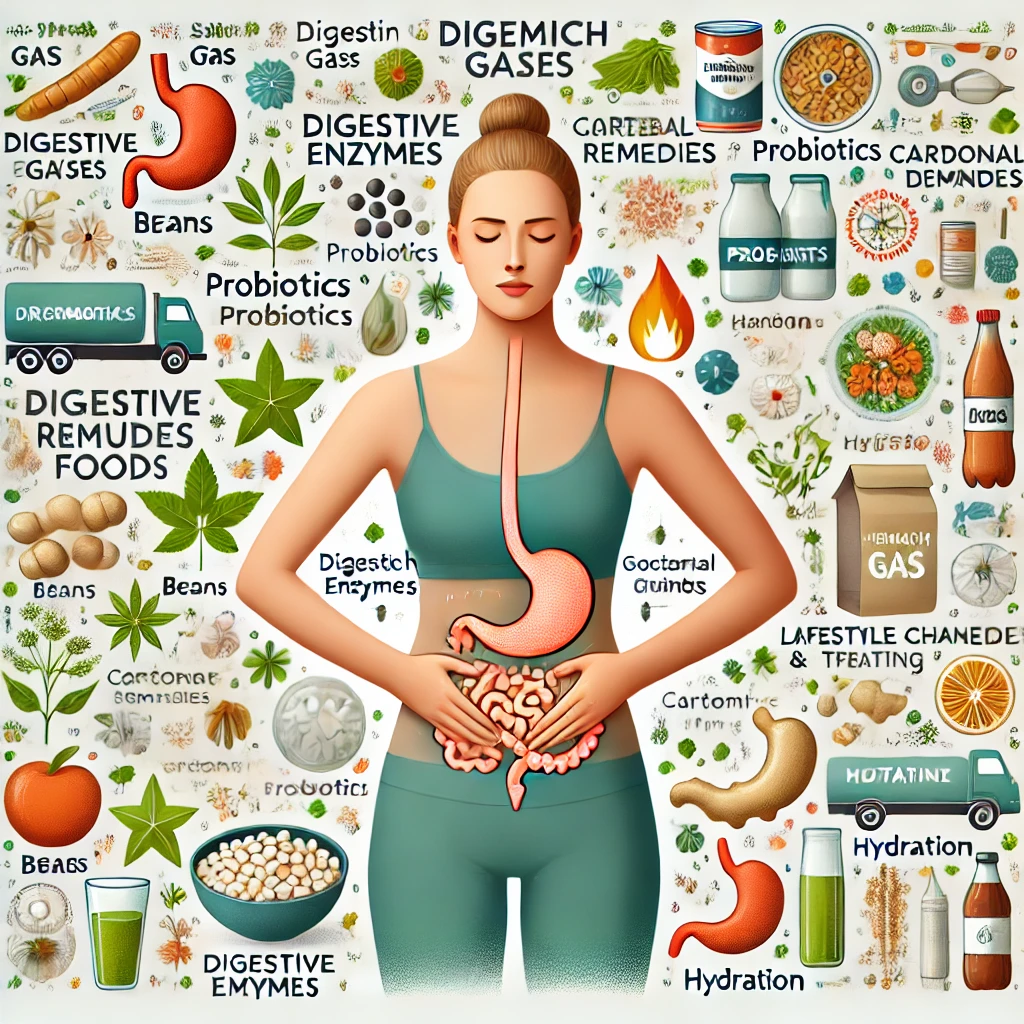
Stomach gas is a common yet often uncomfortable condition that everyone experiences at some point. While it’s a natural part of digestion, excessive gas can lead to bloating, discomfort, and even embarrassment. In this comprehensive blog, we’ll explore what stomach gas is, its causes, natural ways to control it, and the best treatments available.
What is Stomach Gas?
Stomach gas, or flatulence, is a buildup of air in the digestive system. It’s a normal byproduct of digestion, as the body breaks down food. Gas can be released through burping (from the stomach) or passing wind (from the intestines). While occasional gas is normal, excessive gas may indicate an underlying issue.
Common Causes of Stomach Gas
Understanding the causes of gas is the first step toward managing it. Here are the most common reasons:
1. Swallowing Air (Aerophagia)
Swallowing too much air while eating, drinking, or talking can lead to gas. Common habits include:
- Eating or drinking too quickly.
- Chewing gum or sucking on hard candies.
- Drinking carbonated beverages.
2. Diet
Certain foods are known to produce gas during digestion. These include:
- High-Fiber Foods: Beans, lentils, broccoli, and whole grains.
- Sugars and Sweeteners: Lactose (in dairy), fructose (in fruits), and artificial sweeteners like sorbitol.
- Starchy Foods: Potatoes, corn, and wheat.
- Carbonated Drinks: Soda, beer, and sparkling water.
3. Digestive Disorders
Medical conditions can disrupt digestion and increase gas production. These include:
- Irritable Bowel Syndrome (IBS): A chronic condition causing bloating, gas, and abdominal pain.
- Lactose Intolerance: Inability to digest lactose, leading to gas and bloating.
- Celiac Disease: An autoimmune reaction to gluten that damages the intestines.
- Small Intestinal Bacterial Overgrowth (SIBO): Excess bacteria in the small intestine ferment food, producing gas.
4. Food Intolerances
Some people have difficulty digesting certain foods, leading to gas and bloating. Common culprits include dairy, gluten, and high-FODMAP foods.
5. Constipation
When stool builds up in the colon, it can slow digestion and increase gas production.
How to Control Stomach Gas Naturally
If you’re looking for natural ways to manage gas, these remedies and lifestyle changes can help:
1. Adjust Your Diet
- Identify Trigger Foods: Keep a food diary to track which foods cause gas and limit them.
- Eat Smaller Meals: Large meals can overwhelm your digestive system. Opt for smaller, more frequent meals.
- Cook Beans Properly: Soak beans overnight and rinse them before cooking to reduce gas-producing compounds.
2. Eat and Drink Slowly
Take your time to chew food thoroughly and avoid gulping drinks. This reduces the amount of air you swallow.
3. Stay Active
Physical activity helps move gas through the digestive tract. A short walk after meals can aid digestion and reduce bloating.
4. Herbal Remedies
Certain herbs have natural carminative properties that relieve gas:
- Peppermint Tea: Relaxes the digestive tract and reduces bloating.
- Ginger: Stimulates digestion and reduces gas.
- Fennel Seeds: Chew a teaspoon after meals to prevent gas.
- Chamomile Tea: Soothes the stomach and reduces gas.
5. Probiotics
Probiotics are beneficial bacteria that support gut health. They can help balance your gut microbiome and reduce gas. Include probiotic-rich foods like yogurt, kefir, sauerkraut, and kimchi in your diet.
6. Stay Hydrated
Drinking enough water helps digestion and prevents constipation, which can contribute to gas.
7. Avoid Carbonated Drinks
Carbonated beverages release gas in your stomach, leading to bloating. Opt for still water or herbal teas instead.
Best Medicines for Stomach Gas
If natural remedies aren’t enough, over-the-counter or prescription medications can provide relief:
1. Simethicone
Simethicone (found in products like Gas-X) breaks up gas bubbles in the stomach, making them easier to pass.
2. Activated Charcoal
Activated charcoal tablets can absorb excess gas in the digestive tract, reducing bloating and discomfort.
3. Lactase Supplements
For those with lactose intolerance, lactase supplements (like Lactaid) help digest lactose, preventing gas.
4. Antacids
Antacids containing simethicone (like Mylanta) can relieve gas and heartburn.
5. Prescription Medications
For conditions like IBS or SIBO, your doctor may prescribe medications to manage symptoms and reduce gas.
When to See a Doctor
While occasional gas is normal, consult a doctor if you experience:
- Persistent or severe bloating.
- Unexplained weight loss.
- Blood in stool.
- Chronic diarrhea or constipation.
- Severe abdominal pain.
These symptoms could indicate a more serious condition like IBS, celiac disease, or a gastrointestinal infection.
Preventing Stomach Gas
Prevention is always better than cure. Here are some tips to reduce gas:
- Chew Food Thoroughly: This aids digestion and reduces air swallowing.
- Avoid Overeating: Large meals can overwhelm your digestive system.
- Limit Artificial Sweeteners: Sorbitol and xylitol can cause gas.
- Exercise Regularly: Physical activity promotes healthy digestion.
- Manage Stress: Stress can disrupt digestion and increase gas production.
Conclusion
Stomach gas is a natural part of digestion, but excessive gas can be uncomfortable and embarrassing. By understanding its causes and adopting natural remedies, dietary changes, and lifestyle adjustments, you can effectively manage and prevent gas. If symptoms persist, consult a healthcare professional to rule out underlying conditions. Remember, a healthy gut is key to overall well-being, so take care of your digestive system, and it will take care of you.
Have you tried any of these remedies or tips? Share your experiences and suggestions in the comments below!
